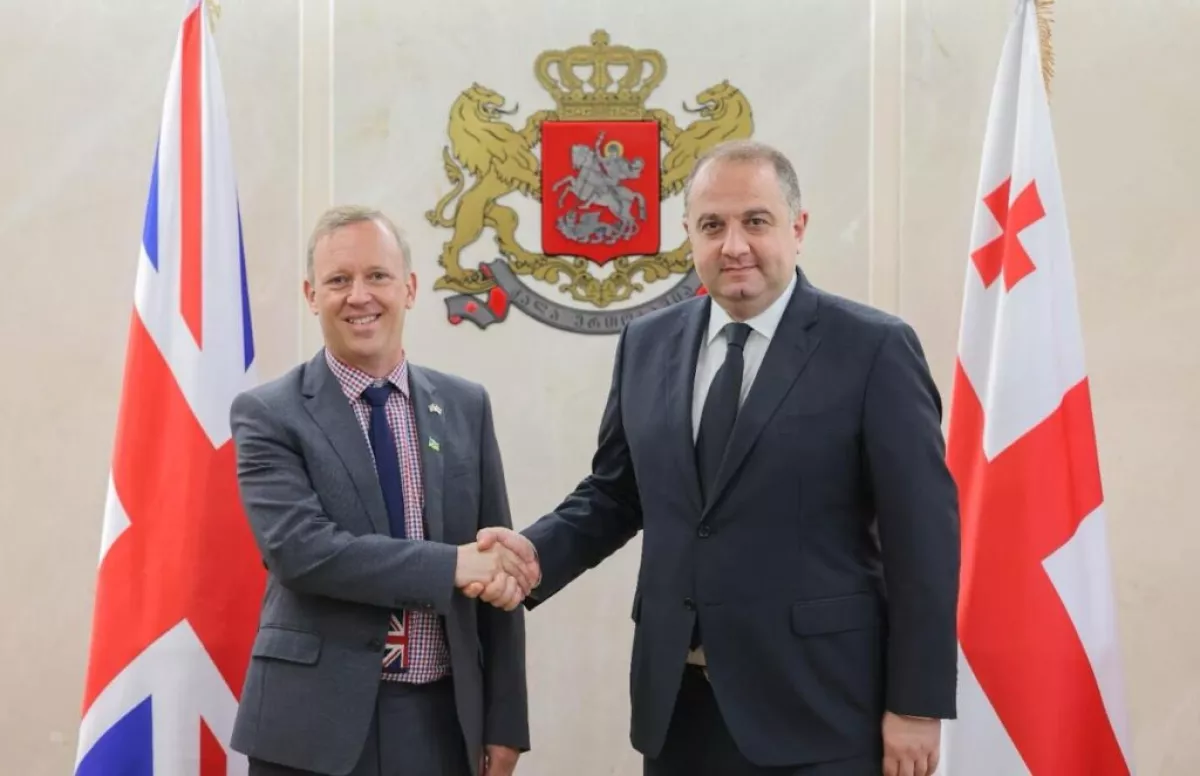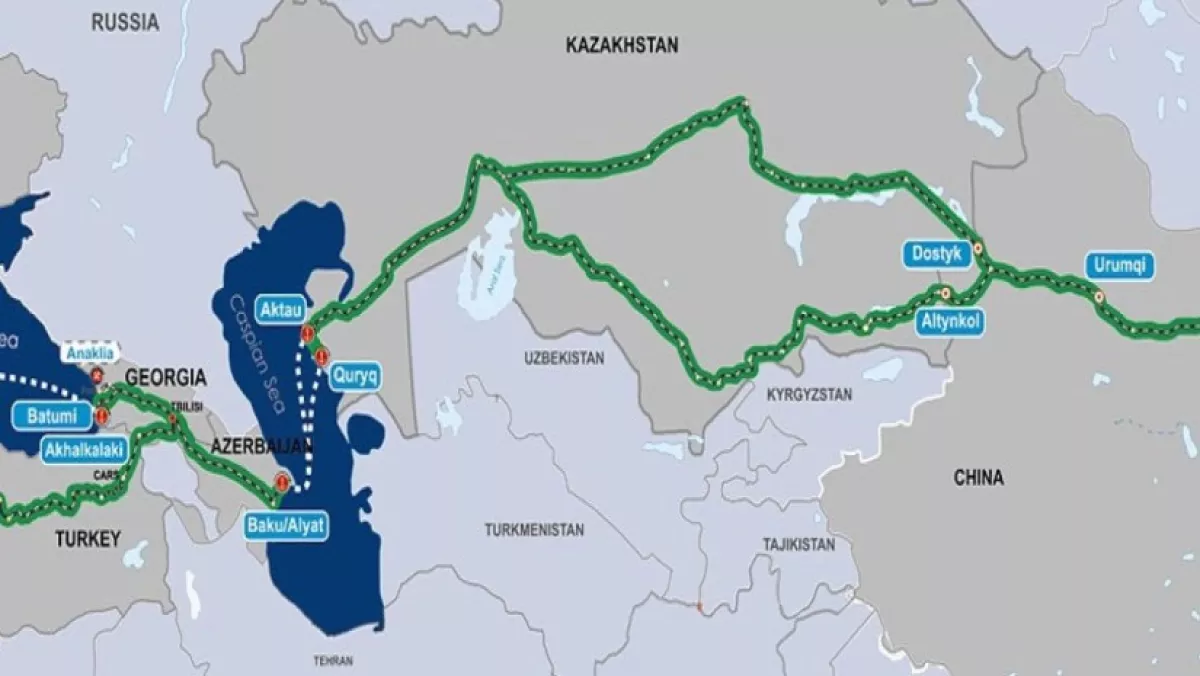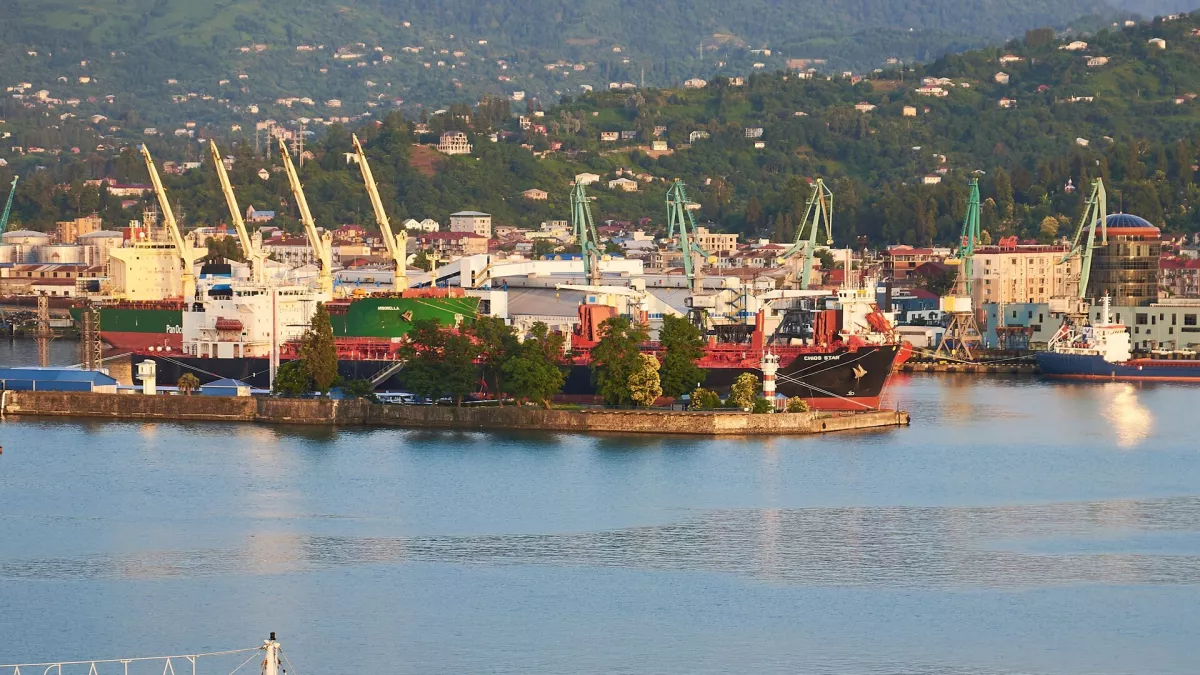Georgia’s vital role in Middle Corridor London’s strategic gaze
Forecasting future stability or instability in any given country can be partially assessed through the policies of airlines. Their business requires anticipating potential political and military risks in advance. Judging by the policies of British airlines regarding Georgia, they do not currently fear instability in the country.
The United Airports of Georgia reported that five leading European media outlets have written about the upcoming operations of the United Kingdom’s flagship airline—British Airways—and the British low-cost carrier easyJet in Georgia. “The two largest British airlines, British Airways and easyJet, will soon connect Tbilisi with London,” states articles published by major British publications: The Independent, Daily Mail, Business Traveller, as well as aviation publication Travel Radar and Euronews Georgia.
The articles emphasize that the new direct routes from London’s Heathrow and Luton airports will reduce flight time from 8 to 5 hours. “Georgia is becoming an unexpected hot spot for summer 2025 as British Airways and easyJet begin direct flights from London,” the articles state.
The published materials aim to enhance Georgia's attractiveness to foreign tourists, particularly British ones. They deliberately avoid highlighting the political confrontation in Georgia between the "pro-European" forces and the Georgian Dream, the risks associated with the upcoming elections, and the cooling of relations between Georgia and the EU.
It's important to note that the United Kingdom itself has left the EU. Therefore, London has little reason to be concerned about the slowdown in Georgia's European integration. Likely, London does not view the potential victory of the Georgian Dream in the parliamentary elections on October 26, 2024, as a "catastrophe."
Initially, the United Kingdom, in sync with the European Union and the United States, criticized the Georgian authorities for the "foreign agents" law. However, over time, this criticism has waned. The last sharp comment came from the former British ambassador to Georgia, Mark Clayton, who reported that British investors had paused several important deals in Georgia due to the political instability caused by the adoption of the "foreign agents" law.
In contrast, the new British ambassador to Georgia, Gareth Ward, has not made similar critical statements. During a recent meeting with Georgian Parliament Speaker Shalva Papuashvili, he expressed support for Georgia's territorial integrity and sovereignty, as well as its democratic and economic development.

Gareth Ward is an experienced diplomat with an extensive background, including roles in the UK Foreign, Commonwealth & Development Office and as ambassador to Vietnam. His appointment as ambassador signals London’s increased attention to Georgia as a crucial country in the Middle Corridor, which provides the shortest transportation link between China, Central Asia, and Europe. Notably, information about Ward's appointment emerged on June 3, 2024, almost immediately after the announcement of the results of the competition for the construction of the deep-water port of Anaklia.
On May 29, 2024, it was revealed that a Chinese-Singaporean consortium, including China Communications Construction Company Limited and China Harbour Investment, won the tender for the Anaklia port project. The opposition accused the Georgian authorities of favouring "Chinese" investors over "Western" ones. However, the consortium is not solely Chinese, as Singapore is an important player in international politics and economics.
Singapore, having been a strategically significant British colony, today maintains friendly relations with the UK and is a member of the British Commonwealth. The involvement of major Singaporean companies in investment projects indicates that they, at the very least, do not contradict British interests.

Today, the interests of the United Kingdom in developing the Middle Corridor, with Georgia as a key country, are evident. The deep-water port of Anaklia is crucial for the logistical support of British investments in Central Asia and the Caspian region. The route through Georgia, and eventually through the port of Anaklia, will provide a convenient outlet for goods from Central Asia and Azerbaijan to the Black and Mediterranean Seas, as well as to the Atlantic Ocean.
The second finalist in the competition for the construction of the Anaklia port was the Swiss-Luxembourg company Terminal Investment Limited, which did not submit its project proposals. Luxembourg is often seen as an "economic extension" of France. Thus, by choosing the Chinese-Singaporean consortium for the Anaklia port, the Georgian Dream in some ways favored "pro-British" investors.
It is challenging to assess the degree of interest that the United Kingdom and France have in the outcomes of the Anaklia port construction competition. However, France, alongside the Armenian lobby and some politicians in Tehran, views Georgia not only as the "key" to the Middle Corridor but also as part of the "North-South" corridor that runs through Armenia, Iran, and India. This corridor will also require its own port on the Black Sea.
Paris's dissatisfaction with the policies of the Georgian authorities has increased, as evidenced by sharp statements from the French ambassador to Georgia, Sheraz Gasri. On July 11, 2024, she informed journalists about the suspension of direct budget support to Georgia and the freezing of the EU accession process.
Against this backdrop, the United Kingdom and British businesses (including airlines) appear more amicable toward the Georgian authorities. While moderate criticism does emerge from time to time, for instance regarding the Georgian Parliament's adoption of the "Family Values Protection" legislative package, the British embassy expressed concern without condemning it as sharply as other Western representatives. The UK respects both the traditions and the nuances of its partners' domestic policies, which seems to apply to Georgia as well.

The Georgian authorities have intensified their efforts to engage with countries in the Middle Corridor, including Kazakhstan, which many analysts consider crucial to the strategic interests of the United Kingdom in Central Asia. On September 18, 2024, a memorandum of understanding was signed between the national banks of Kazakhstan and Georgia. The following day, in Astana, Georgian First Deputy Prime Minister Levan Davitashvili met with Kazakh Prime Minister Oljas Bektenov to discuss cooperation in the transportation sector, including the Middle Corridor.
Cargo transit along this route increased by 65% last year and by 69% in the first eight months of 2024, reaching 2.9 million tons. The parties plan to boost transport volumes to 10 million tons per year.
Interest in the Middle Corridor is also evident from Germany, a leading EU economy. This was highlighted during Chancellor Olaf Scholz's visit to Uzbekistan on September 15-16, 2024, and at the Central Asia – Germany summit held on September 17, 2024, in Astana. Discussions focused on attracting German investors to establish logistics centres along the new railway route China – Kyrgyzstan – Uzbekistan. Given the growing interest in Central Asia, Germany is keen to ensure that the situation in Georgia remains stable.
The stable development of the Middle Corridor requires a predictable political situation in Georgia. While the authorities can be accused of neglecting "European values," "flirting with Russia," or criticized for "slowing down European integration," it is unjust to claim that the Georgian authorities are not doing everything possible to develop the Middle Corridor. This appears to be the most crucial aspect for the United Kingdom today.
The dynamic development of the Middle Corridor serves as a guarantee of predictable Georgian policy after the elections, regardless of who wins on October 26, 2024. This reduces the likelihood of attempts to forcibly change the government in Georgia if the opposition fails to come to power in the upcoming elections.
Vladimir Tskhvediani for Caliber.Az








